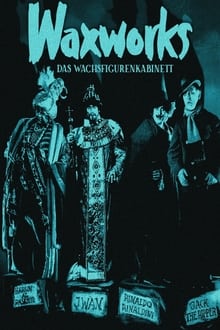Waxworks
Year: 1924Certificate: E
This film does not have a BBFC age certificate. To screen the film you will need to have the film locally classified by your local council.
Waxworks [Das Wachsfigurenkabinett] was the final film Paul Leni directed in Germany before striking out for Hollywood and making such classic works of genre filmmaking as The Cat and the Canary, The Man Who Laughs, and The Last Warning. Its sophisticated melding of genres was in fact what inspired Universal’s Carl Laemmle to invite Leni to come to Hollywood in the first place, as Laemmle was hoping to capitalise on the emerging comedy-horror craze of the 1920s. Yet Waxworks is, at heart, a pure example of German expressionism. Its stylised sets (designed by Leni), fantastical costumes, chiaroscuro lighting, and startlingly bold performances are paragons of the cinematic movement, and contribute heavily to the film’s lasting appeal.
The three separate episodes of Waxworks are united by the character of a young poet (William Dieterle), who is hired by the owner of a wax museum to create backstories for a trio of the museum’s figures: Caliph Harun al-Rashid (Emil Jannings), Ivan the Terrible (Conrad Veidt), and Jack the Ripper (Werner Krauss). The stories are depicted in succession (one per episode), the poet casting himself—as well as the daughter of the wax museum’s owner—at the centre of each tale. Though the poet and the daughter play different characters in the corresponding plots, they are always lovers whose relationship is threatened by the personages of the wax figures.
